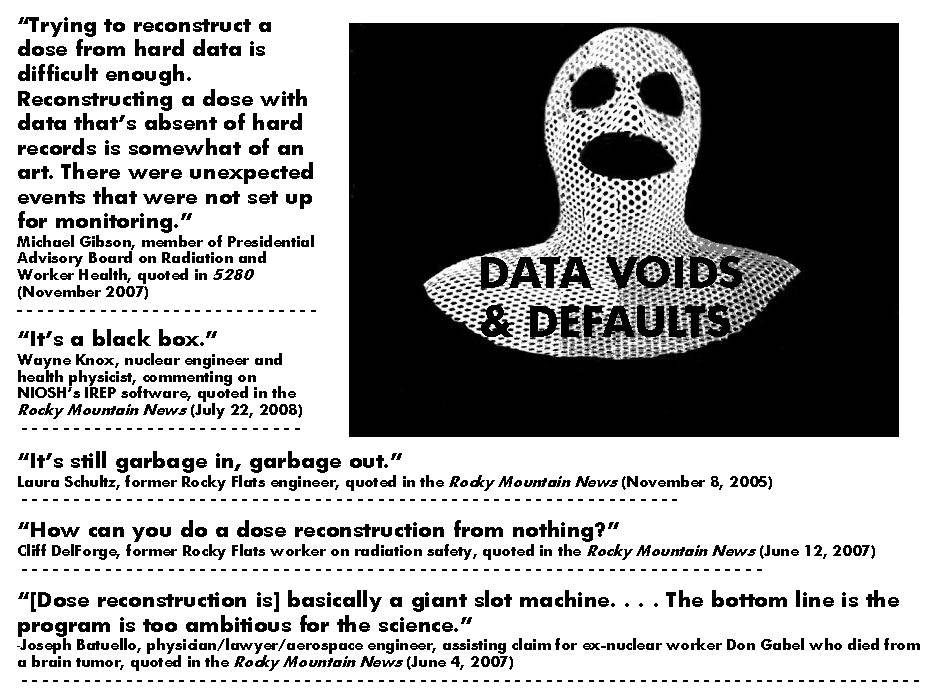Shiloh Krupar, 2013, “The Biomedicalization of War and Military Remains,” Medicine, Conflict, and Survival 29.2, 111-139
https://doi.org/10.1080/13623699.2013.784529
ABSTRACT:
This paper analyses the recent legislation and administration of United States nuclear worker compensation – the Energy Employees Occupational Illness Compensation Programme Act (EEOICPA) – in order to show the domestic impacts of war and the social order that has been established to respond to the Cold War legacy of occupational exposures, illness, and death. Examining the epistemological politics and material effects of compensation, an insufficiently analysed aspect of the Cold War, I argue that the system designed to redress the occupational exposures of nuclear workers accomplishes something else: obscuring the ethical problem of misinformation and missing data from the Cold War era; mobilising an industry of knowledge and market–economic opportunities in the arena of biomedical exposure assessment and dose reconstruction for parts of the former US nuclear complex; and, lastly, dematerialising and depoliticising geographies of the Cold War and its differential impacts through an individualistic epidemiological reprocessing of radiation exposures. The paper shows how the general claims procedure, combined with two methods mandated by EEOICPA – dose reconstruction and the probability of causation – effectively de-link workers from each other, and worksites from homes, pin compensation to a cost–benefit logic, implicate genuine scientific complexity and uncertainty in an ongoing denial of the toxic legacies of war, and ethically undermine the social justice aims of the legislation. The article ends by considering some of the ways that US nuclear workers have responded to living as the remains of both US bomb production and the compensation system.
